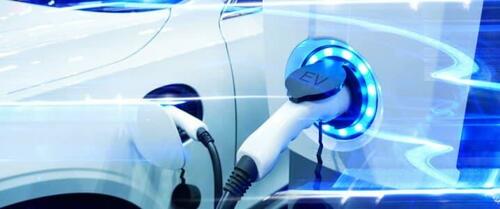
By Tsvetana Paraskova of OilPrice.com
The European Union and China agreed on Friday to continue discussions on a possible alternative to the EU import tariffs on China-made electric vehicles, a week before the levies are set to come into force, the European Commission said.
The European Commission’s Executive Vice-President and Commissioner for Trade, Valdis Dombrovskis, initiated a video call today with Chinese Minister of Commerce, Wang Wentao, to discuss the EU investigation on imports of battery electric vehicles (BEVs) from China and ongoing negotiations about price undertakings.
Early this month, the European Commission received enough support from the EU member states to impose hefty tariffs of up to 45% on imports of electric vehicles from China due to unfair subsidizing.
The EU and China have been negotiating a potential alternative solution to the tariffs, but if they do not reach an agreement, the import duties will come into force at the end of this month.
Talks with China on an alternative to the EU tariffs will continue even after the high import duties are imposed next week, the Commission has said.
After the EU-China call on Friday, the Commission said “The principals took stock of the progress made during eight technical negotiating rounds, as well as significant remaining gaps.”
Both parties “reaffirmed their political commitment to finding a mutually agreeable solution, which would need to be effective in addressing the level playing field in the EU market and WTO-compatible,” the Commission said, adding that “The principals agreed that further technical negotiations would take place shortly.”
The provisional EU tariffs, in force since July, have led to a reaction in China, which is proceeding with anti-dumping investigations of EU imports, targeting brandy and pork imports from the bloc, likely aimed at Spain, France, the Netherlands, and Denmark.
Several EU member states, including Germany, and Germany’s giant automakers have expressed concern that the tariffs could lead to a wider trade spat and retaliatory tariffs from China.
By Tsvetana Paraskova of OilPrice.com
The European Union and China agreed on Friday to continue discussions on a possible alternative to the EU import tariffs on China-made electric vehicles, a week before the levies are set to come into force, the European Commission said.
The European Commission’s Executive Vice-President and Commissioner for Trade, Valdis Dombrovskis, initiated a video call today with Chinese Minister of Commerce, Wang Wentao, to discuss the EU investigation on imports of battery electric vehicles (BEVs) from China and ongoing negotiations about price undertakings.
Early this month, the European Commission received enough support from the EU member states to impose hefty tariffs of up to 45% on imports of electric vehicles from China due to unfair subsidizing.
The EU and China have been negotiating a potential alternative solution to the tariffs, but if they do not reach an agreement, the import duties will come into force at the end of this month.
Talks with China on an alternative to the EU tariffs will continue even after the high import duties are imposed next week, the Commission has said.
After the EU-China call on Friday, the Commission said “The principals took stock of the progress made during eight technical negotiating rounds, as well as significant remaining gaps.”
Both parties “reaffirmed their political commitment to finding a mutually agreeable solution, which would need to be effective in addressing the level playing field in the EU market and WTO-compatible,” the Commission said, adding that “The principals agreed that further technical negotiations would take place shortly.”
The provisional EU tariffs, in force since July, have led to a reaction in China, which is proceeding with anti-dumping investigations of EU imports, targeting brandy and pork imports from the bloc, likely aimed at Spain, France, the Netherlands, and Denmark.
Several EU member states, including Germany, and Germany’s giant automakers have expressed concern that the tariffs could lead to a wider trade spat and retaliatory tariffs from China.
Loading…




